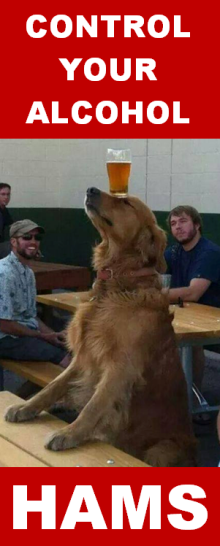Introduction
It is not uncommon for people who are feeling depressed to drink alcohol because alcohol can provide some short term relief for the symptoms of depression. Some people with depression also have insomnia and alcohol can help to put one to sleep as well.However, long term heavy drinking can sometimes induce symptoms of depression in people who were never depressed before. Moreover, long term heavy drinking can also worsen the symptoms of a pre-existing depression. You may feel better while you are intoxicated, but the morning after drinking the depression may actually be even worse than it was before.
Fortunately, a reduction in alcohol intake or a period of abstinence can generally clear up an alcohol induced depression in a few weeks.
Types of Depression
Broadly speaking depression can be divided up into three types: situational depressions, inherited depressions, and drug or alcohol induced depressions. We touched briefly on alcohol induced depressions above and will return to them again later. For now let us take a look at the other two types.Most researchers today believe that things like depression, anxiety, heavy drinking, and many other things can be best described using a Diathesis Stress Model. What this means is that some people are more prone to suffering depression than others because of various factors such as genetics. This is the "diathesis". When certain events occur in the environment this can lead the individual to develop depression. This is the "stress".
People who are readily prone to depression can have depression triggered by a relatively minor event. Other people are more resistant to depression and will require a more major event to trigger depression in them.
People who are strongly predisposed to depression by their brain chemistry seem to be the most likely to respond to antidepressants. Other things like sadness at the death of a friend or relative are natural reactions which do not normally call for medications.
We will refer to depressions which are largely caused by outside events as "situational depressions" and those which are largely caused by genetics and brain chemistry as "inherited depressions".
Emotions Are Survival Mechanisms
Emotions are not our enemies. Emotions are survival mechanisms which nature has built into us after millions of years of evolution. Love is an emotion which helps the species survive. Just as packs of wolves and herds of cattle work together to survive, so do humans.Grief at the loss of a loved one through death or divorce or what-have-you is also a natural emotion. Love could not exist without the possibility of grief. Grief can lead to situational depression.
In the normal mentally healthy individual grief should eventually be processed and the person should move on to the next phase of life. But some people get stuck in a state of situational depression instead of moving on. Then they may drink heavily to try to medicate the depression and find that problems associated with the drinking actually wind up compounding the depression instead.
Some therapists have been taught that it is impossible for anyone to deal with any sort of emotional issues such as depression until the client is 100% abstinent from alcohol and that the only way to get a client to be 100% abstinent from alcohol is to coerce them into a 12 step program against their will.
However, research demonstrates that both of these ideas are dead wrong. Research by people like Andrew Tatarsky and Patt Denning has demonstrated that people who have a dual diagnosis problem make the best progress when they are allowed to work on the issue which they find most problematic first. It is also very helpful if they choose to work on both issues at once, if this is what the client chooses. Refusing to help a client for a mental health problem unless the client agrees to total abstinence has the potential to do untold harm. Untreated depression greatly increases the chances of a person suicide.
Treatment
Treatments for depression include antidepressants such as tricyclics or SSRIs. Various forms of talk therapy such as CBT (Cognitive Behavioral Therapy), support groups and self-help books these can be used separately or in conjunction with each other.Antidepressants have been shown to reduce both drinking and depressive symptoms in individuals with both Major Depressive Disorder and Alcohol Dependence. However, antidepressants are not for everyone. Some people get more side effects than help. And there is some evidence that antidepressants might make some people drink more. See our ezine article for more information on this: Do Antidepressants Make Some People Drink More?
Always consult your doctor before making changes in your medications.
REFERENCES:
Tatarsky, A (2001). Harm reduction psychotherapy : a new treatment for drug and alcohol problems. Northvale, NJ. Jason Aronson.Denning, P (2000). Practicing harm reduction psychotherapy : an alternative approach to addictions . New York : Guilford Press,.



